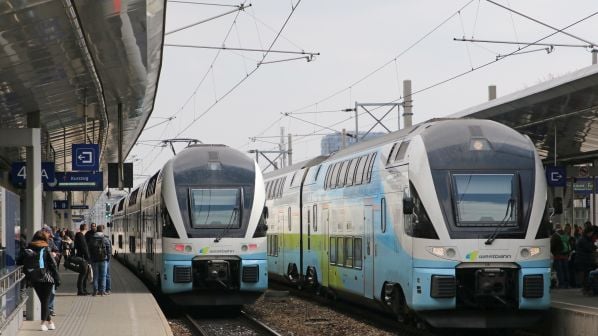THE joint owner of Austrian private railway operator Westbahn, Mr Hans Peter Haselsteiner, has urged the Austrian finance minister to extend a government support programme to operate rail services between Vienna and Salzburg.
The federal Ministry of Climate Protection, Environment, Energy, Innovation and Technology agreed in November to provide Westbahn and incumbent state-owned operator Austrian Federal Railways (ÖBB) respective €7.5m and €37m subsidies to operate an hourly service on the route, which both companies previously operated commercially. This agreement ran from November 16 until February 7.
A further €30m has been earmarked for the service and was submitted by the transport ministry on January 7. However, transport minister, Ms Leonore Gewessler, needs approval from finance minister, Mr Gernot Blümel, to proceed. Blümel indicated on February 9 that he was not yet ready to approve the funding, questioning the logic of supporting ÖBB which is still a profitable enterprise.
However, without the support, Westbahn, which has reported loadings of 10-30% since the start of the pandemic, will operate at a substantial loss. As a result, Haselsteiner says the operator will halve its service frequency on the route on February 16, operating only a peak time service. It will also reduce the working hours of many of its 200 employees.
He says that although the easing of coronavirus restrictions will result in an increase in traffic - commercial activities recommenced in Austria on February 8, and in school teaching is set to resume after the half-term holiday - this will not be sufficient to sustain the operator because loadings will remain suppressed compared with pre-pandemic levels. The reduced frequency of service will also put passengers using the train at increased risk of exposure to coronavirus due to higher passenger numbers on each train.
“We know that with the easing, the frequencies on the western railway line will increase again,” Haselsteiner says. “Unfortunately, however, they will not be high enough to prevent high losses. On the other hand, the frequency will no longer be high enough to maintain the two-metre distance between passengers. The trains will be too full.”
Hastelsteiner says Westbahn reported a loss of €6.5m in 2020, compared with a profit of €16m after tax in 2019. The operator lost 49 staff during the year as it sought to reduce costs.
Under the current timetable, Westbahn is operating a two-hourly service. The mutual acceptance of tickets between ÖBB and Westbahn also ceased on February 7.
The ‘No locomotive down in lockdown!’ initiative of environmental campaigners is planning a rally to protest the proposed ending of support at Linz Central Station on Friday.

